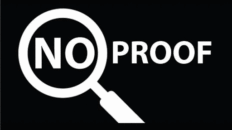By Hiran de Silva
When I challenge the FP&A tools industry, I often point out that what they claim Excel cannot do in an enterprise context… is exactly what Excel can do. In fact, it’s built in. I then demonstrate it live — global, online, enterprise-scale.
The reaction is telling: first surprise (“we didn’t know Excel could do that”), followed by justification (“our customers don’t know either, so they use Excel in a certain traditional way”).
And that is precisely the issue.
It is one thing to serve a market based on customer demand. It is quite another to build an entire $100B industry on misrepresenting a capability that the customer already owns.
The Reverse Gear Revisited
This is the equivalent of telling motorists: “cars can’t reverse” — then selling them specialist reverse-only vehicles.
Everyone nods, because in their own experience they’ve never used reverse. They assume the statement must be true. White papers, seminars, and webinars reinforce the belief.
But of course, cars have always had reverse gear. The problem isn’t the car. The problem is that drivers don’t know it’s there.
Selling Ice to Eskimos (With a Twist)
There’s a saying about “selling ice to the Eskimos.” In our case, it’s even more absurd.
It’s like telling Eskimos that the stuff all around them isn’t ice at all — it’s Styrofoam. And because it’s unsuitable for their gin and tonic, they must import ice at great cost from the desert.
The Eskimos believe it, because that’s what everyone says. They pay a premium for something they already have in abundance, because clever marketing tells them they don’t.
This is precisely how the alternative-to-Excel industry operates.
The Flat Earth Problem
History is full of similar absurdities.
- When people believed the Earth was flat, entrepreneurs could sell parachutes and safety nets to prevent falling off the edge.
- In the pension sales industry, projections of compound interest were presented in a way customers misinterpreted — a regulatory scandal that lasted years.
The common thread? Marketing that leverages misconceptions rather than correcting them.
The Ethical Question
So here is the intellectual dilemma:
👉 Is it ethical to sell a product by reinforcing a customer’s misconception about what they already own?
The FP&A industry claims Excel lacks enterprise capability. They know (or ought to know) that this is false. Yet because customers are unaware, they continue to promote the misconception, justify it in white papers, and sell expensive solutions that underdeliver compared to Excel’s built-in potential.
This is not harmless salesmanship. It has a cost:
- billions wasted on redundant systems,
- agility lost,
- opportunities for transformation missed.
Enlightenment as Social Currency
There is a different path. One of higher social value: to educate the market. To illuminate the truth. To show enterprises that Excel, properly architected, already meets and exceeds the requirements that competitors claim it cannot.
This is not just a business model. It is a public service. It is pulling back the curtain on decades of misrepresentation.
The Call to Action
Excel’s enterprise capabilities are not a secret. They are simply unknown. And those who profit from the illusion have little incentive to reveal them.
So the responsibility falls on us — practitioners, leaders, educators — to expose the illusion, demonstrate the truth, and raise the ethical standard in our industry.
Because the real scandal isn’t Excel Hell.
The real scandal is selling ice to Eskimos by convincing them the glacier is Styrofoam.






Add comment